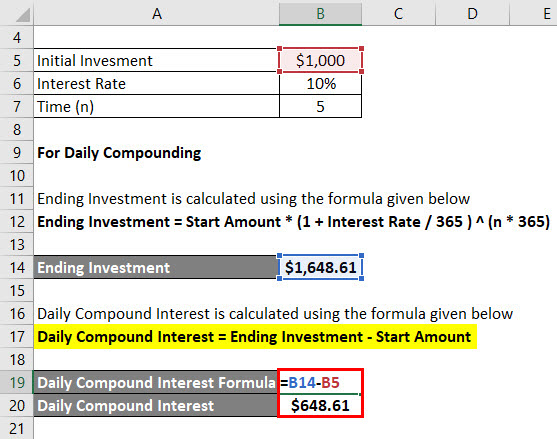
Imagine planting a seed in your garden. You water it, give it sunlight, and over time, it grows into a magnificent tree. Now, imagine if that tree could grow exponentially every single day. That's the power of compounding in the stock market. But do stocks really compound daily? Let's dive in and explore the truth behind this fascinating concept.
Understanding Compound Interest
Compound interest is often referred to as the "eighth wonder of the world." It's the process where interest is calculated on the initial principal and also on the accumulated interest of previous periods. This means your money grows faster over time because you're earning interest on interest.
In the context of stock investment, compound interest can significantly boost your financial growth. When you reinvest your dividends and capital gains, you're essentially allowing your investment portfolio to compound. But does this happen daily?
The Myth of Daily Compounding
Many investors believe that stocks compound daily. While it's true that stock prices fluctuate daily, the concept of daily compounding is a bit more nuanced. Stocks don't compound in the same way that a savings account with daily compounding interest does. Instead, the compounding effect in stocks comes from the reinvestment of dividends and the appreciation of the stock price over time.
Think of it like a snowball rolling down a hill. Initially, the snowball is small, but as it rolls, it picks up more snow, growing larger and faster. Similarly, your stock investment grows over time as you reinvest your earnings.
Factors Affecting Stock Market Growth
Several factors influence the compounding effect in your investment portfolio. Understanding these can help you make informed financial planning strategies.
- Dividend Reinvestment: When you reinvest dividends, you're buying more shares, which can increase your overall investment returns.
- Stock Price Appreciation: As the stock price increases, so does the value of your investment.
- Time: The longer you hold your stocks, the more time they have to compound.
For example, if you invest in a company that pays regular dividends and the stock price appreciates over time, you're benefiting from both dividend reinvestment and stock price appreciation. This dual effect can significantly enhance your financial growth.
The Role of Time in Compound Interest
Time is your best friend when it comes to compound interest. The longer you invest, the more time your money has to grow. This is why starting early is crucial in stock investment. Even small contributions can grow into substantial sums over decades.
Consider the rule of 72, a simple way to estimate how long it will take for your investment to double. Divide 72 by the annual rate of return. For instance, if you expect an annual return of 8%, it will take approximately 9 years for your investment to double. But remember, this is a simplification. Real-world returns can vary significantly.
Strategies for Maximizing Investment Returns
So, how can you maximize the compounding effect in your investment portfolio? Here are a few strategies to consider:
- Dollar-Cost Averaging: Invest a fixed amount of money regularly, regardless of whether the market is up or down. This can help smooth out the effects of volatility over time.
- Diversification: Spread your investments across different sectors and asset classes to reduce risk. This can help protect your portfolio from significant losses.
- Regular Reinvestment: Reinvest your dividends and capital gains to take full advantage of compound interest.
By implementing these strategies, you can enhance your financial planning and potentially achieve higher investment returns.
The Truth About Daily Compounding
So, do stocks compound daily? The short answer is no, not in the traditional sense of compound interest. However, the daily fluctuations in stock prices and the reinvestment of dividends can create a compounding effect over time. This is why long-term investing is often more rewarding than short-term trading.
Think of it like a marathon rather than a sprint. The daily ups and downs in the stock market can be challenging, but if you stay the course and reinvest your earnings, you'll see the benefits of compounding over time.
Conclusion
Understanding whether stocks compound daily is crucial for any investor. While stocks don't compound in the same way as a savings account, the reinvestment of dividends and the appreciation of stock prices can create a powerful compounding effect. By implementing smart financial planning strategies and staying invested over the long term, you can maximize your investment returns and achieve significant financial growth.
So, are you ready to harness the power of compounding in your investment portfolio? Start by reinvesting your dividends, diversifying your investments, and staying committed to your long-term financial goals. Your future self will thank you.
FAQs
1. What is the difference between simple interest and compound interest?
Simple interest is calculated only on the principal amount, while compound interest is calculated on the principal and the accumulated interest. This means that compound interest grows faster over time.
2. How often should I reinvest my dividends?
The frequency of reinvesting dividends depends on your investment goals and risk tolerance. However, reinvesting dividends regularly can help maximize the compounding effect in your investment portfolio.
3. What is the rule of 72?
The rule of 72 is a simple way to estimate how long it will take for your investment to double. Divide 72 by the annual rate of return to get an approximate number of years.
4. Why is diversification important in stock investment?
Diversification helps reduce risk by spreading your investments across different sectors and asset classes. This can protect your portfolio from significant losses and enhance long-term financial growth.
5. How can I start investing in stocks?
To start investing in stocks, open a brokerage account, research potential investments, and develop a financial planning strategy. Consider factors like your risk tolerance, investment goals, and time horizon.
```
Posting Komentar